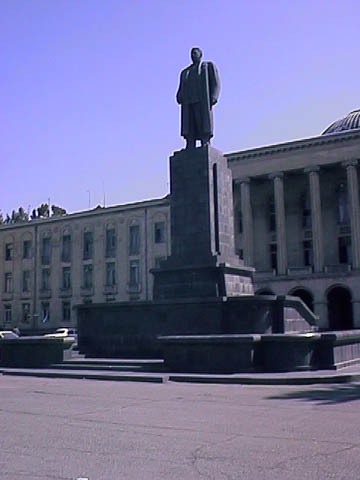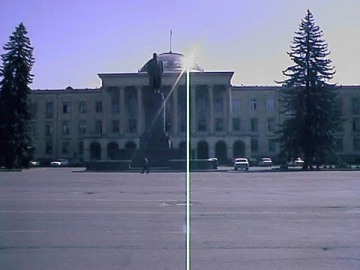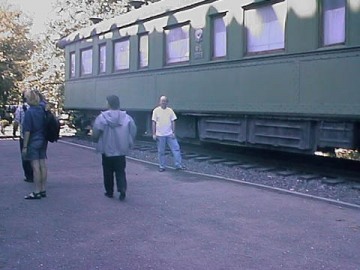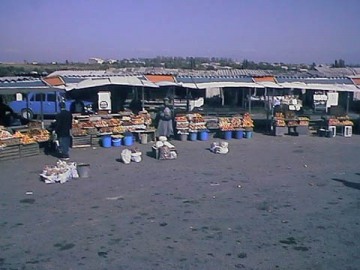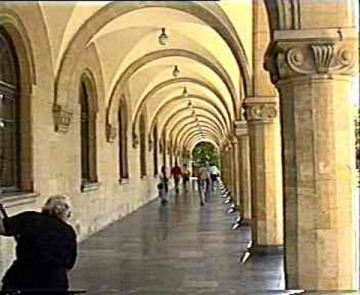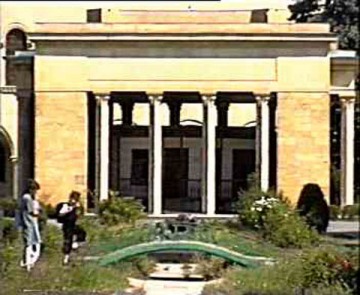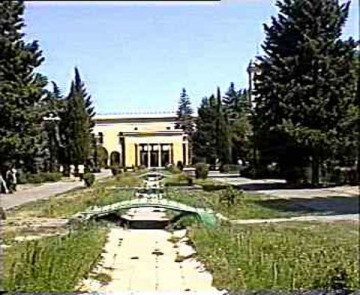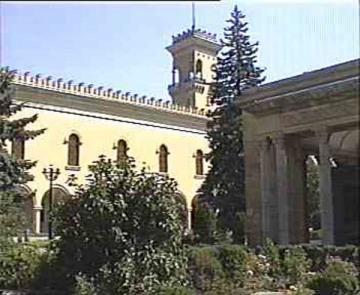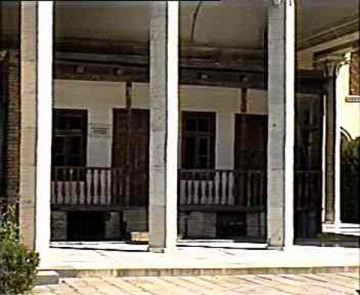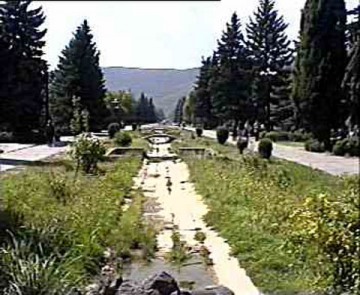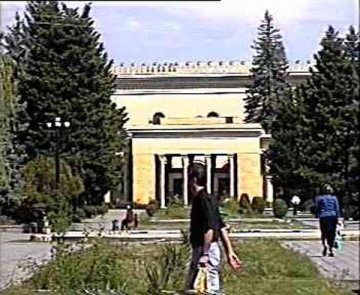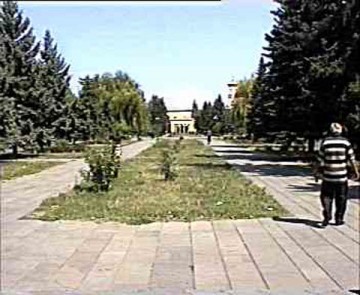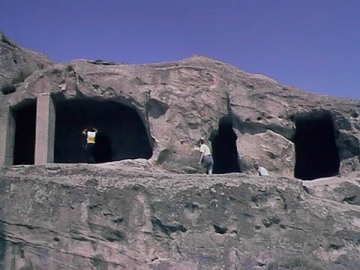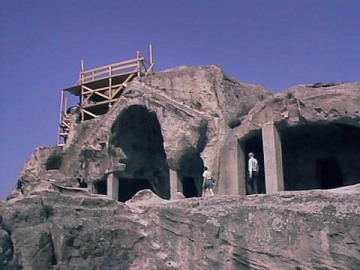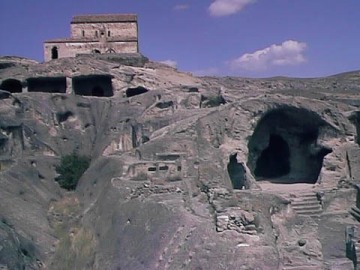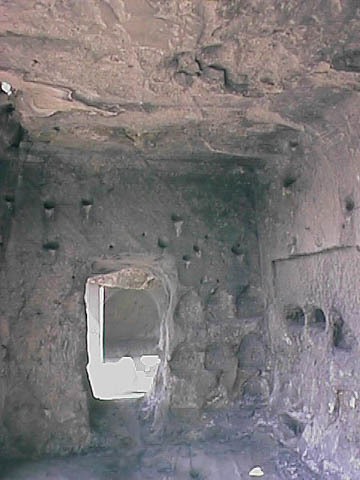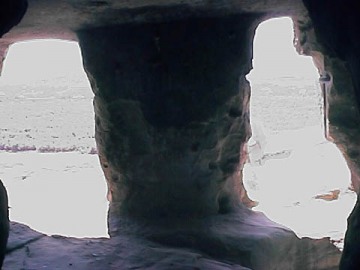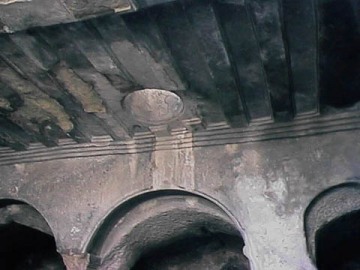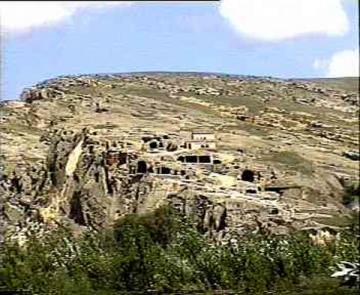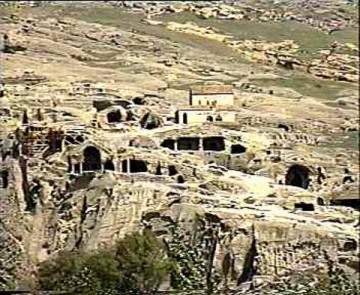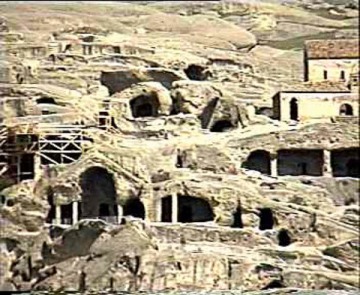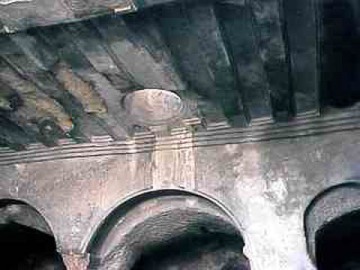Off at 9.00 after everyone has stroked Tomba and said goodbye. On the way out we see trailers double-decked stacked with beehives. The weather was getting poor again in the mountains. Looked like we had been lucky with the weather. On the way, we stopped at a fruit market where there was a lovely array of goodies. Rosemary tried some lozenge-shaped red berries like rose hips.
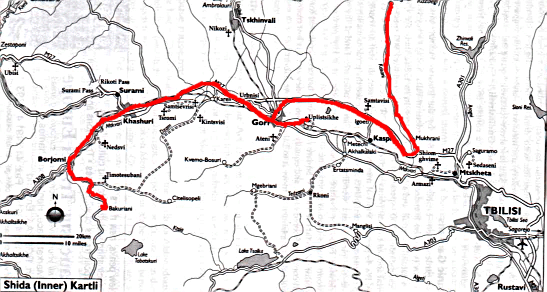
Gori
Now we went into the town of Gori. Stalin was born in Gori. It is said Georgia was spared some of Stalin’s excesses because of his mother. He was afraid of her. In Gori, we saw the Stalin museum where there was Stalin stuff, including the house in which he was born, and the railway carriage in which he travelled. The trip around the museum was by a candle. The guide looked very fierce and was definitely a Stalinist. Nino translated into English for us. The torch was very useful. No power cuts, but very dim lighting and bad displays.
Outside the museum was Stalin’s railway carriage. This was armor plated and very luxurious inside.
In front of the museum was the preserved house where Stalin had been born. The whole area in front of the museum would have had fountains and running water, and gardens. this was now almost derelict.
We ate our packed lunch outside the museum, and then boarded the coach to go to the cave town of Uplistsikhe. On the way out of Gori, we stopped to take some additional pictures of Stalin statues.
Uplistikhe
The visit to the museum of Stalin finished, we carried on to the cave village of Uplistikhe. The village is about 10km East of Gori. The village was a trading centre in the 5th century BC, part of the Silk road. Later it became more isolated and was inhabited by monks until it was destroyed in the 13th century.
We saw the amphitheatres, pharmacy with eight layers of storage spaces where traces of herbs were found, bread ovens, prisons, basins for collecting the blood from sacrifices, and market stalls. The caves were all carved out of the soft rock, with carved pillars, and carved vaultings making the roof look as though it had been built. Outside there were water channels and drains carved into the rocks to stop flooding when it rained.
Rosemary went to the loos here and was faced with a set of doorless stalls. She could see everyone squatting down and decided there was not a consensus of opinion as to the way you should enter.
As we arrived, there was one incident where a man in the local village run-up to the coach and appeared to stab the rear wheel with a knife. The driver stopped very quickly and was out of the door chasing the man in no time at all. There appeared to be no damage and we continued the trip.
Bakuriani
After the visit to the cave town of Uplistikhe, we continued on to Bakuriani where we were going to stay for two nights. This was quite a long trip over pretty rough roads. At one point we passed through the town of Borjomi, which is a spa town. Here the Borjomi water is bottled. The bottling factory was rather derelict and did not appear to be operational. Apparently, there was an area in the factory that still worked. We had to pass through this town several times in the next two days, and we always bought our water here as we passed through. There were several stalls outside the houses by the factory selling water.
From Borjomi to Bakuriani was another hour going uphill into what was a very popular ski resort in the Soviet times. There were several very large hotels built at the bottom of the ski slopes. These were now all ruined, broken windows, and cows walking in and out of them. The furthest hotel was still functional, and this was the one we stayed in. It must have had 200 rooms, and was quite grand at some stage.
The ski lifts were no longer functional, (save maybe one). The three ski jumps had trees growing up through the jump. The hotel had a huge restaurant which was not at all cosy. It was coloured all in bright red with the usual dim lighting. Most of us decided to eat outside that night, the atmosphere of the restaurant was not conducive to eating. Outside there were some nice tables and some dogs (Puppy), the food we did not like, so we fed to the dogs. There was a definite hierarchy with these dogs and lots of squabbles.
At night we could hear the rats running through the partition walls and ceilings of the building. Joan and Ray Rolinson (70-year-old) broke their bed with great hilarity.
The bar did not open for some time, and never had any change, so we ended in paying in dollars and getting sweets for change. The barman was a young lad who wanted to live in the Bahamas.
